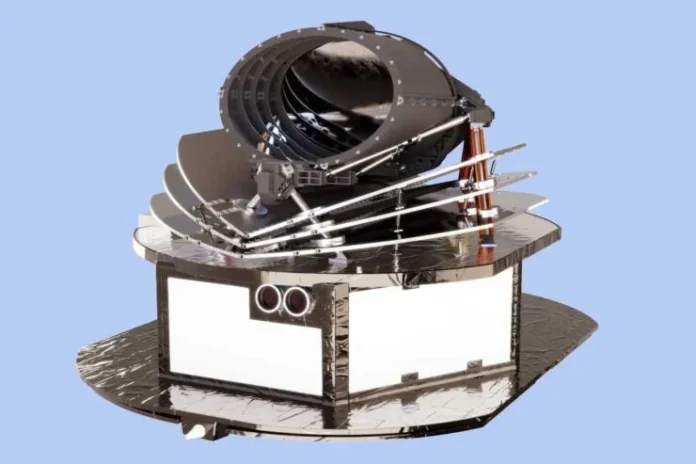Toulouse. The European Space Agency (ESA) has signed a contract with Airbus to build the Atmospheric Remote-sensing Infrared Exoplanet Large-survey (Ariel) mission. Ariel is the fourth medium-class mission in ESA’s Cosmic Vision programme.
Ariel will study the composition of exoplanets, how they formed and how they evolve, by surveying a diverse sample of about 1000 extrasolar planets in visible and infrared wavelengths. It is the first mission dedicated to measuring precisely the chemical composition and thermal structures of transiting exoplanets. The contract is valued at around € 200 million.
“Airbus has extensive experience of leading ground-breaking science missions, including JUICE, Gaia, Solar Orbiter, LISA Pathfinder and CHEOPS, on which we are building for ESA’s latest science mission, Ariel,” said Jean-Marc Nasr, Head of Space Systems at Airbus.
“In our Toulouse facilities, the largest space site in Europe, we have all the resources, facilities and expertise to design, manufacture and integrate the spacecraft and actively support ESA with payload development. Airbus Stevenage is fully integrated in the prime team for the engineering of the avionics, Radio Frequency communication and electrical design of the platform, as successfully proven for the development of Gaia”.
Airbus will lead the European industrial consortium with more than 60 contractors for building the satellite and provide expertise and support to ESA for the development of the payload module.
“With this milestone for the Ariel mission we celebrate the continuation of the outstanding relationship with our industry partners to keep Europe at the forefront of excellence in the field of exoplanet research well into the next decade and beyond,” said Günther Hasinger, ESA’s Director of Science.
More than 5,000 exoplanets have been identified since the first observation in 1995, but little is known about the chemical composition of their atmospheres. Existing space science missions are delivering results on exoplanets (such as the Airbus-built CHEOPS for ESA), but Ariel will be the first mission dedicated to studying the atmospheres of a large number of exoplanets, including main atmospheric component determination and cloud characterisation. Observations of these worlds will give insights into the early stages of planetary and atmospheric formation, and their subsequent evolution, in turn contributing to the understanding of our own Solar System. They could help us find out whether there is life elsewhere in our universe and if there is another planet like Earth.
The mission will focus on warm and hot planets, ranging from super-Earths to gas giants orbiting close to their parent stars, taking advantage of their well-mixed atmospheres to decipher their bulk composition.
After its launch, in 2029 on an Ariane 6 launcher, Ariel will be injected onto a direct transfer trajectory to the second Lagrangian point (L2). Thanks to its very stable thermal and mechanical design, the spacecraft will be able to carry out long term observations of the same planet/star system for a duration of between 10 hours and up to three days. Its mission will last four years with a possible extension of at least two years.
Airbus was prime contractor for ESA’s mission CHEOPS. Launched in December 2019, its goal is to characterise exoplanets orbiting nearby stars, observing known planets in the size range between Earth and Neptune and precisely measuring their radii to determine density and composition.





